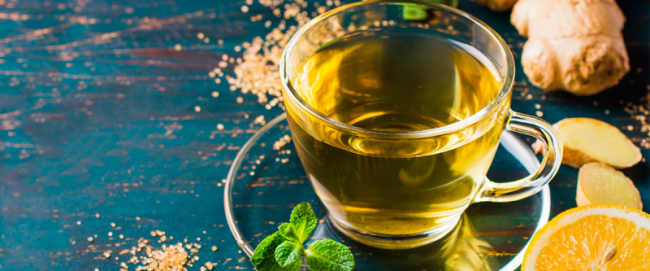Source: https://top-list.co/top-foods-to-avoid-eating-while-pregnant-v3682.html
- Caffeinated Drinks and Sodas
- Unpasteurized Cheese
- Raw Sprouts
- Unripe Papaya
- High-Mercury Fish
- Sushi
- Egg-Based Products
- Organ Meats
- Medium-Rare Steak
- Herbal Teas
Caffeinated Drinks and Sodas
Coffee is a beloved beverage known for its ability to fine-tune your focus and boost your energy levels. Coffee, tea, energy drinks, and even sugary sodas contain caffeine.
However, it is advised to stay away from coffee when pregnant. Consuming caffeine during pregnancy can have an impact on the growing baby by increasing catecholamine levels, fetal heart rate, and placental vasoconstriction. Impaired oxygen uptake in the fetus can be fatal. Caffeine use increases the risk of low birth weight, premature labor, and birth defects. It is recommended to keep your daily caffeine intake to 200 mg while pregnant—the less, the better. Drink water, fruit juice, or green smoothies when you’re feeling thirsty because they are hydrating and nutritious and include a range of important vitamins and minerals that are beneficial to the growth of the fetus.
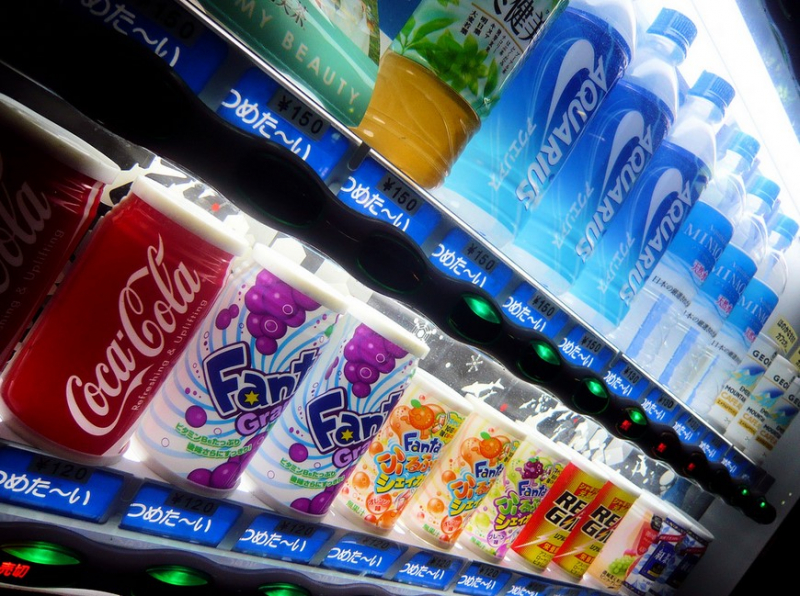
Caffeinated Drinks and Sodas

Unpasteurized Cheese
Because cheese is high in calcium, fat, protein, vitamin A, B12, zinc, phosphorus, and riboflavin, it is good for pregnant women. Pregnant women are advised by the American College of Obstetricians and Gynecologists (ACOG) to consume at least 1000 mg of calcium daily to promote the healthy development of the baby’s bones and tooth buds. This dietary need can be easily met with cheese.
However, unpasteurized cheeses like Camembert and Danish blue cheese may contain bacteria that can cause food poisonings, such as E. coli or listeria. Listeria can also cause flu-like symptoms, which for adults may not be deadly but which can be extremely dangerous for unborn babies. Instead, choose pasteurized cheeses like cheddar, which are high in calcium and totally devoid of harmful bacteria. They are not only risk-free but also have 492% more calcium than milk.
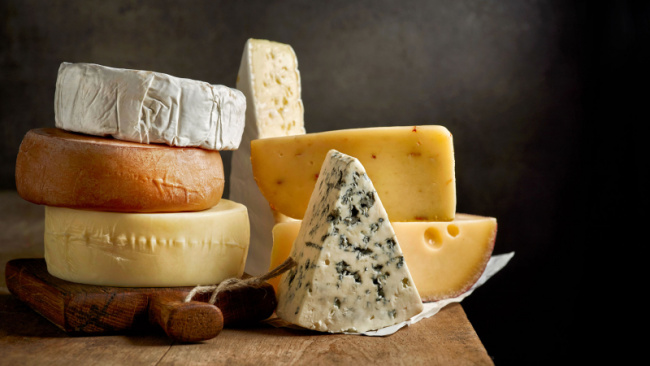
Unpasteurized Cheese
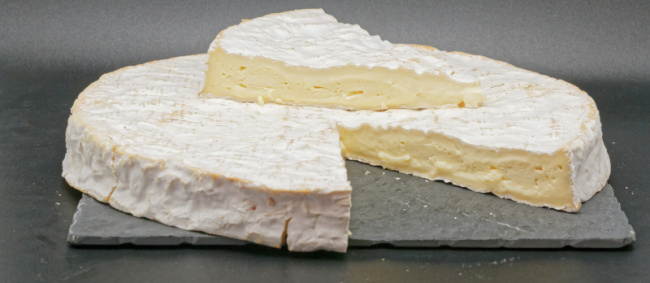
Raw Sprouts
Due to their high levels of folate, magnesium, manganese, phosphorus, and vitamin K, sprouts are regarded as a superfood. Folate is crucial throughout pregnancy, especially in the first trimester, it has the ability to reduce the risk of serious birth defects including anencephaly and spina bifida. Magnesium promotes a healthy weight and lessens fetal growth restriction, while phosphorus is essential for healthy kidney and neuron function, muscle growth, and cell repair.
However, sprouts are only healthy during pregnancy if they have been cooked thoroughly. Listeria, salmonella, and E. coli are some of the disease-causing bacteria that can be found in raw sprouts of mung beans, radish, clover, etc. Simply cook sprouts thoroughly to reap their nutritional benefits without endangering your baby’s health. In salads, hot soups, and stir-fries, use cooked sprouts. For the same nutrients, you may also try asparagus and leafy greens like kale and spinach.
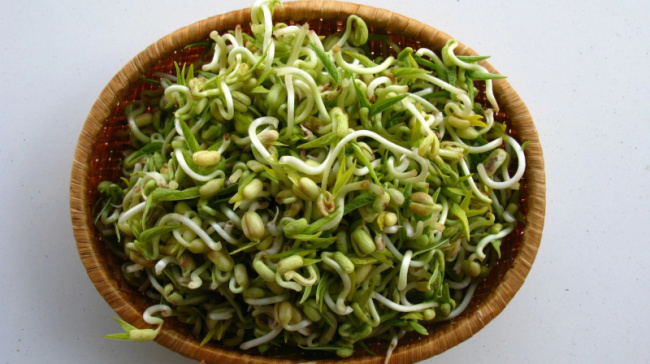
Raw Sprouts

Unripe Papaya
In addition to potassium and magnesium, papaya is a great source of vitamins C, A, and E, which are potent antioxidants that support the health of the immune systems.
Unripe papayas, on the other hand, should be avoided by pregnant women in their first trimester as they contain a form of latex that can cause uterine contractions and early labor. Papain, one of the proteolytic enzymes found in papayas, is used in marinades to tenderize meat. This enzyme has the ability to mimic prostaglandin in your body and trigger labor. Additionally, papain has the ability to weaken the membrane supporting the fetus. Ripe papayas don’t have papain and latex too. Other fruits that are high in vitamin A and C include oranges, mangoes, lemons, apples, and berries; bananas, avocados, and apricots are excellent choices for potassium.

Unripe Papaya
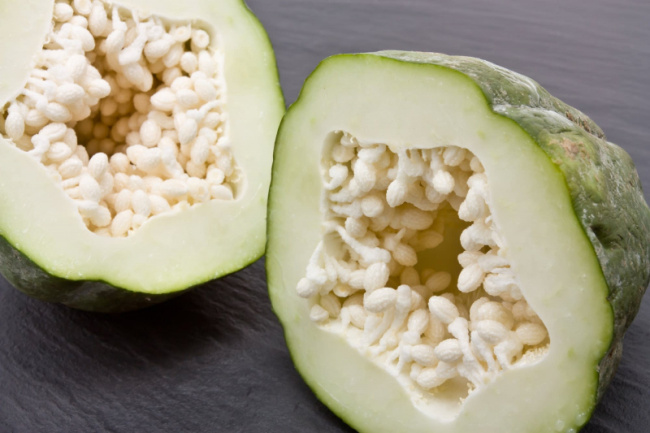
High-Mercury Fish
A diet should always include fish. It offers you a variety of vitamins and minerals in addition to being a good source of high-quality protein. Your baby’s cognitive development depends on the rich omega-3 fatty acids (DHA and EPA) found in fish. Salmon also contains a lot of selenium, a mineral that is essential for the detox of heavy metals and the protection of the brain. Enzymes based on selenium may also lower the risk of preterm birth and pregnancy-induced hypertension.
A poisonous chemical called mercury, which can harm the nervous system, kidneys, and immune system may be found in high levels in some types of fish, making them best avoided while pregnant. Both fresh and canned fish that are high in mercury include shark, swordfish, king mackerel, and certain types of tuna (albacore, yellowfin, and bigeye). Low-mercury fish offer all of the great benefits of seafood without the toxicity risk. Anchovies, cod, salmon, and sardines are some examples of these kinds.
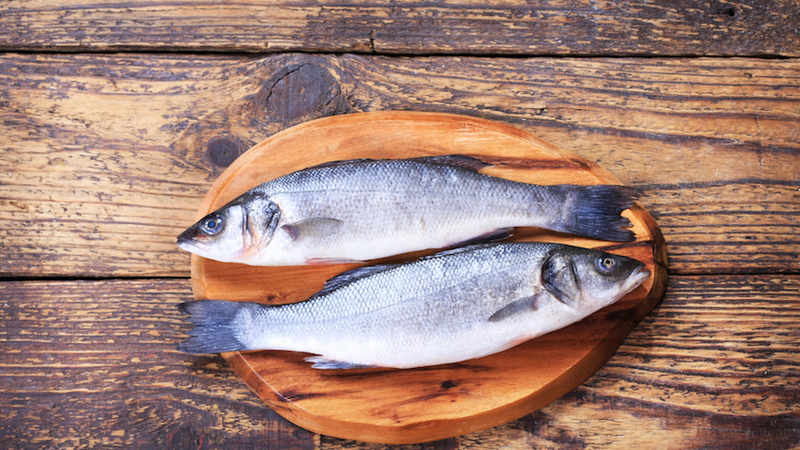
High-Mercury Fish

Sushi
The likelihood of harmful bacteria or parasites in raw fish is much higher than in cooked fish. For your own safety, you should avoid consuming it when pregnant. Unfortunately, this means no sashimi or sushi! The no-undercooked-or-raw-fish-sushi rule applies to all three trimesters.
“Undercooked or raw fish increases the risks of exposure to certain types of bacteria during pregnancy and is more likely to contain bacteria and parasites”, says Dr. Lisa Valle, DO, OB-GYN at Providence Saint John’s Health Center. When thoroughly cooked and with low mercury content, most fish varieties are acceptable. Despite being less attractive, overcooked fish is preferable to risking your baby’s health.
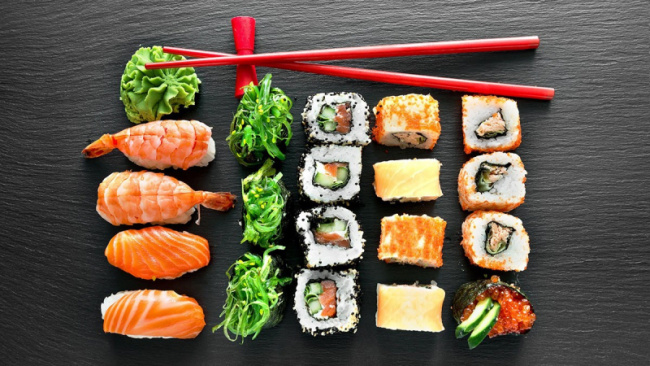
Sushi
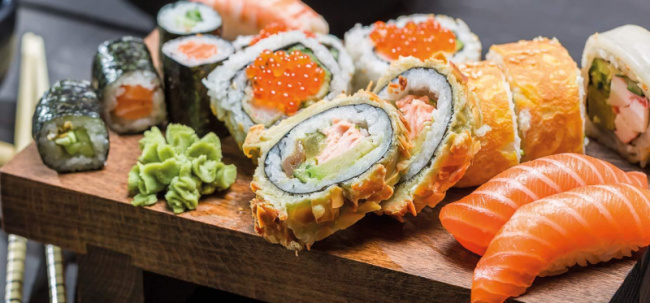
Egg-Based Products
Because they include a lot of protein and good fats, eggs are among the world’s most nutrient-dense foods. They are also great sources of iron, vitamins, minerals, and carotenoids, all of which lower the risk of SGA (small for gestational age) babies.
However, salmonella, a serious food poisoning, can be found in raw or undercooked eggs. While everyone can be affected by it, pregnant women are far more at risk. Salmonella can lead to an infection of the amniotic fluid and cause a miscarriage. Many egg-based products, such as mayonnaise, mousse, and Caesar salad dressing, include raw eggs, which most consumers are unaware of. If you want to be safe when you’re pregnant, you must avoid these products. The ideal cooking time for eggs is when the yolk is totally hard.

Egg-Based Products
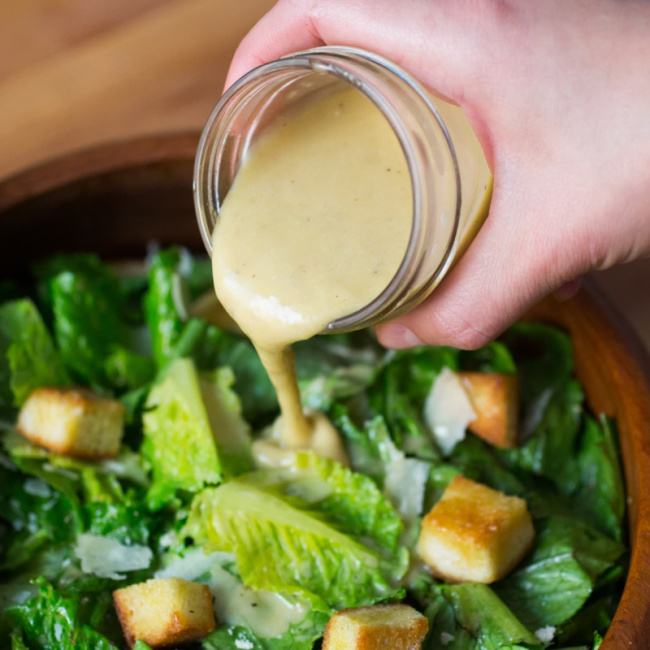
Organ Meats
Organ meats are incredibly high in nutrients, particularly vitamin A. A, D, E, and K, zinc, magnesium, selenium, and B vitamins including vitamin B12 and folic acid are also rich in them.
However, consuming too much vitamin A derived from animals may result in pregnancy complications such as congenital malformations or even miscarriage during the first trimester. It’s best to keep your consumption of organ meats like liver to just a few ounces once per week. Choose high-quality meats like grass-fed beef and free-range chicken instead of organ meats, and set the livers aside. In addition, foods like berries, sweet potatoes, dark leafy greens, and legumes can provide a comparable vitamin and mineral profile.
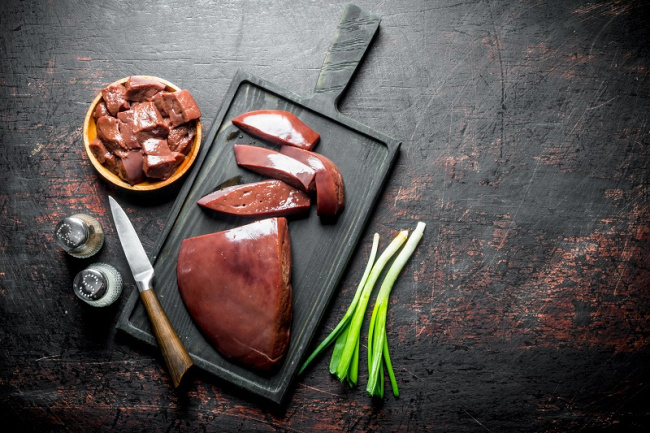
Organ Meats
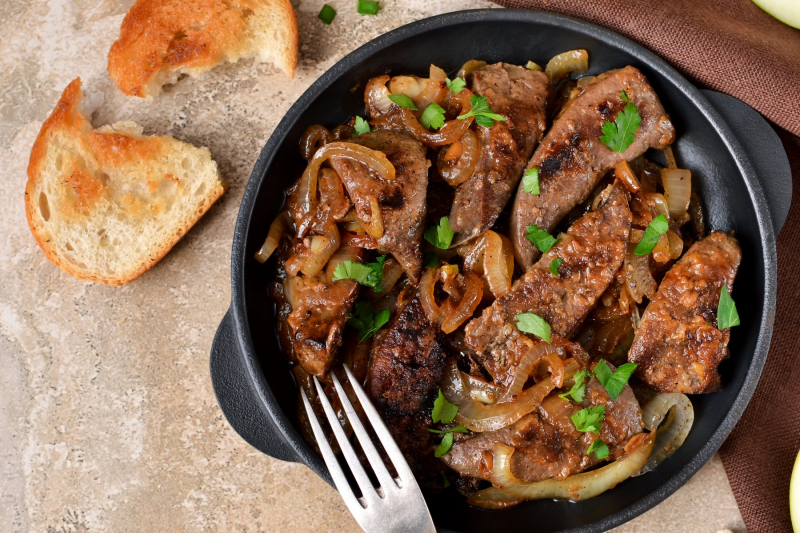
Medium-Rare Steak
Steaks are a great addition to your pregnancy diet since they are a good source of protein, iron, zinc, dietary creatine, and vitamin B12. Unfortunately, salmonella and Toxoplasma gondii, which can cause serious digestive upset, are most likely to be found in anything pink.
While some people may eat medium-rare or even rare steak without risking more than a few sick days, pregnant women must never consume anything less than well-done since it might cause dehydration from stomach issues, preterm delivery, and low amniotic fluid, and even birth defects. Before eating, thoroughly cook your steak. Although you might not like the flavor as much, you can at least rest assured your child is safe. Additionally, there is no difference between well-cooked and medium-rare steak.

Medium-Rare Steak
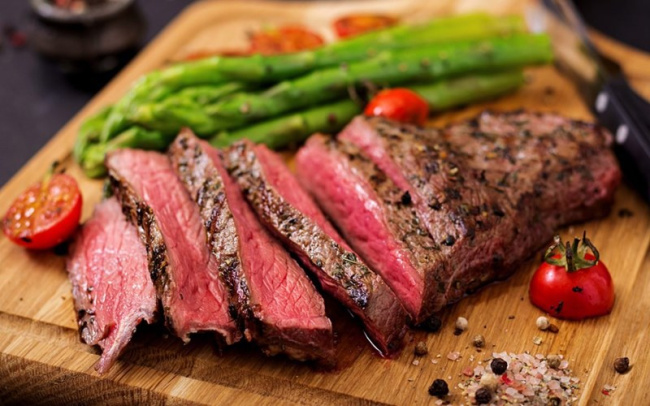
Herbal Teas
Due to their high content of polyphenols, antioxidants, and anti-inflammatory compounds, herbal teas including chamomile, peppermint, and lemon balm are frequently recommended as excellent stress relievers (which can help with blood circulation).
While herbal teas may be a wonderful way to relax after a stressful day, pregnant women should take precautions because there is research on the effects of herbal teas on developing babies. Check with your doctor to see which herbal teas are definitely safe for pregnant women if you cannot live without them. Alternatively, low-caffeine green teas, beet juice, and chocolate can provide you with the same health benefits as herbal teas.

Herbal Teas
